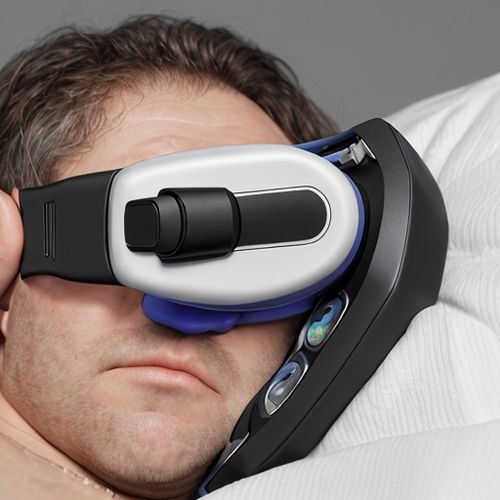In the relentless march of medical progress, few diseases have proven as elusive and devastating as Alzheimer's. This insidious condition, which robs individuals of their memories and cognitive abilities, has long been a formidable foe in the realm of healthcare. However, a recent announcement by the US Food and Drug Administration (FDA) signals a significant breakthrough in the fight against Alzheimer's. The FDA has granted marketing clearance to a blood test developed by Fujirebio Diagnostics Inc., marking the first time a test has been approved to aid in the early detection of Alzheimer's disease in the United States. This development is not just a scientific achievement; it is a beacon of hope for millions of Americans and their families.
The Lumipulse G pTau217/ß-Amyloid 1-42 Plasma Ratio test, designed for adults aged 55 and older exhibiting signs and symptoms of Alzheimer's, represents a paradigm shift in diagnostic capabilities. By measuring two key proteins in blood plasma—pTau217 and beta-amyloid 1-42—the test provides a ratio that correlates with the presence or absence of amyloid plaques in the brain. These plaques are a hallmark of Alzheimer's disease, and while the test does not directly measure amyloid, it can signal its presence with remarkable accuracy. This is a crucial step forward, as there remains no single definitive test for Alzheimer's, and current diagnostic methods rely on a combination of medical history, neurological exams, cognitive evaluations, brain imaging, and spinal fluid analysis.
The FDA's approval of this blood test is particularly significant given the staggering prevalence of Alzheimer's disease. As FDA Commissioner Dr. Martin Makary emphasized, Alzheimer's impacts more people than breast cancer and prostate cancer combined. With 10% of individuals aged 65 and older currently affected by Alzheimer's, and projections indicating that this number will double by 2050, the need for early detection and intervention has never been more urgent. Dr. Makary's hope that new medical products like this blood test will help patients is not just wishful thinking; it is a tangible step toward mitigating the impact of this devastating disease.
One of the most compelling aspects of the Lumipulse G test is its potential to democratize access to Alzheimer's detection. Traditional methods, such as positron emission tomography (PET) scans, are prohibitively expensive, costing thousands of dollars even without insurance. The new blood test, however, offers a simpler, more affordable alternative. The FDA's review of clinical trial data involving 499 cognitively impaired adults demonstrated the test's efficacy, with a 91.7% confirmation rate for amyloid plaques in those with positive results and a 97.3% accuracy rate for negative results. These statistics underscore the test's reliability and its potential to transform diagnostic practices.
Dr. Richard Isaacson, a preventive neurologist and director of research at the Institute for Neurodegenerative Diseases in Florida, has been using this blood test for research purposes for years. His endorsement of the FDA's clearance highlights the test's significance as a screening tool. Compared to PET scans or spinal taps, the blood test is a much simpler and more accessible option, providing reasonable accuracy in identifying whether cognitive decline is due to Alzheimer's disease. However, Isaacson also cautions that while this is an important step forward, more research is needed to interpret and apply blood test results effectively in clinical settings. The field must advance education about what these tests mean and who should be tested, as their implications vary depending on individual risk factors and symptoms.
The potential benefits of early detection through this blood test are profound. Early and accurate diagnosis not only allows for more effective interventions but also paves the way for the development of new drug therapies. As Monte Wiltse, president and CEO of Fujirebio Diagnostics, noted, an early diagnosis can facilitate the creation of treatments urgently needed to address the growing prevalence of Alzheimer's in an aging global population. With an estimated 42% of Americans over the age of 55 expected to develop dementia in their later years, the ability to detect amyloid plaques decades before symptoms emerge could empower individuals to take proactive steps to slow disease progression, such as initiating preventive medication.
The Alzheimer's Association, a leading advocate in the fight against the disease, has also welcomed the FDA's decision. Dr. Maria Carrillo, the association's chief science officer, emphasized the importance of simplifying and improving the accuracy of Alzheimer's diagnosis. The association notes that while other laboratory-developed tests and experimental methods exist, the FDA's clearance of the Fujirebio Diagnostics test represents a major milestone. Blood-based biomarkers, Carrillo argues, are reshaping how we identify and understand Alzheimer's disease, but important questions remain about who should be tested and when.
Dr. Howard Fillit, co-founder and chief science officer at the Alzheimer's Drug Discovery Foundation, views the FDA's clearance as a game-changer. Comparing the new blood test to cholesterol screening, Fillit highlights its potential to enable earlier diagnosis and treatment, significantly slowing or even preventing the disease's progression. This development, he argues, exemplifies the new era of Alzheimer's research, where innovation, science, and technology converge to create more accessible, affordable, and scalable diagnostic tools.
The approval of the Lumipulse G pTau217/ß-Amyloid 1-42 Plasma Ratio test is a triumph of scientific ingenuity and a testament to the relentless pursuit of better healthcare outcomes. It is a milestone that brings us closer to a future where Alzheimer's disease can be detected early, managed effectively, and ultimately, overcome. While challenges remain in interpreting test results and determining optimal testing protocols, the FDA's clearance marks a pivotal moment in the fight against Alzheimer's. It is a reminder that progress, though sometimes slow, is indeed possible, and that every step forward brings us closer to a world where memory loss and cognitive decline are no longer synonymous with despair.
As we stand on the brink of this new era in Alzheimer's diagnosis, it is crucial to recognize the collective effort that has led us here. From the researchers and scientists who developed the test to the healthcare professionals who will implement it, and the patients and families who stand to benefit, this breakthrough is a collaborative achievement. The journey to conquer Alzheimer's is far from over, but with tools like the Lumipulse G test in our arsenal, we are better equipped than ever to face the challenges ahead. The future may still be uncertain, but with each innovation, we move one step closer to a world free from the shadows of Alzheimer's disease.

By Sarah Davis/May 19, 2025

By Natalie Campbell/May 19, 2025

By George Bailey/May 19, 2025

By Lily Simpson/May 19, 2025

By David Anderson/May 19, 2025

By Olivia Reed/May 19, 2025

By Amanda Phillips/May 19, 2025

By Sophia Lewis/May 19, 2025

By Olivia Reed/May 19, 2025

By Emily Johnson/May 19, 2025

By John Smith/May 18, 2025

By Eric Ward/May 18, 2025

By Jessica Lee/May 18, 2025

By Jessica Lee/May 18, 2025

By Sophia Lewis/May 18, 2025

By Rebecca Stewart/May 18, 2025

By Emily Johnson/May 18, 2025

By Rebecca Stewart/May 18, 2025

By Megan Clark/May 18, 2025

By Megan Clark/May 18, 2025